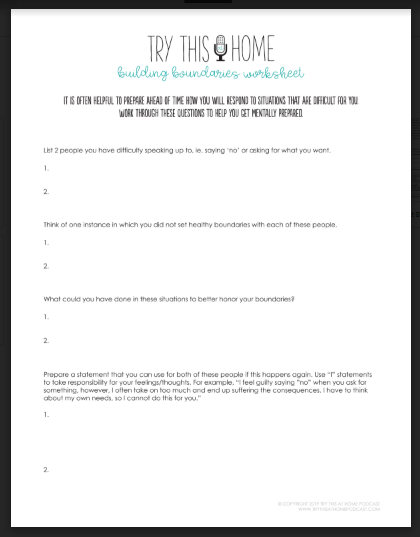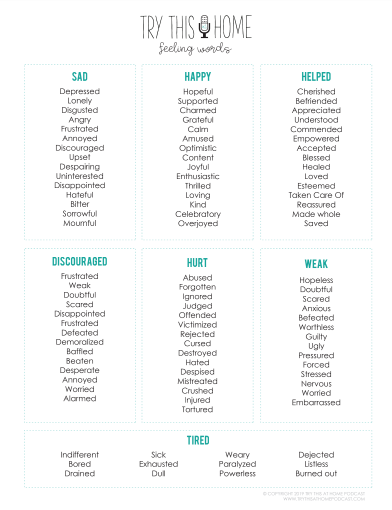Time Budget Worksheet
From Episode 2 - Print the worksheet to identify exactly where your time does go each day. Remember not to judge of criticize, just identify each thing you spend time on in order to determine what can be adjusted.
Self Care Activities Keepsheet
From Episode 3 - This self care worksheet will offer plenty of ideas on how to recharge your batteries. With room for your own ideas, you’ll never have to put energy into coming up with ways to care for yourself. Print this download and keep it in an obvious place where you’re likely to see it and be reminded of the need to take care of your spirit.
Time Management Tip Sheet
From Episode 4 - Print this tip sheet and keep it in the front of your planner so that you are reminded of this discussion. It may also be helpful to place a 2nd copy in your office where it can be noticed easily for those times when you need to remember the key points.
Toxic People Tip Sheet
From Episode 5 - Print and use these tips to deal with those toxic people in your life. Don’t let them poison you in the midst of their issues!
Healthy Boundary Worksheet
From Episode 11 - Print this boundary worksheet if there is a challenging boundary you are attempting to establish. Work through each question so that you are prepared to respond when it becomes necessary to defend your position.
Finding Your Communication Style
From Episode 12 - This printout is TWO pages - one listing characteristics of each communication style and another to help you decipher yours with more clarity. The worksheet is also designed to help you understand how you may have developed your specific style.
Communication Rules
From Episode 13 - This printout is a great resource to keep in front of you during those times you need to remember how to keep your cool. It’s a great reminder and teaching tool for people of all ages.
Feeling Words List
From Episode 13 - Another great print & use resource to increase your vocabulary. A good exercise is to describe your experiences from each day with as many different words from this list as possible. Try not to use “happy”, “sad”, or “mad”.
Defensive Tip Sheet
From Episode 14 & 15 - Leslie and Leslyn spent two episodes covering many of the ways we can cope with both feeling defensive and handling defensive people. This tip sheet is a handy reference for those times when our natural tendencies take over and defense sets in.
Brain Dump Worksheet
From Episode 18 - our ‘Unplugged’ episode. We talk about how productive it can be to just brain dump ideas and thoughts (some people call this journaling).
We’ve created this brilliant blank sheet for you to write ideas, make lists, or just doodle as you clear the chatter from your mind.
Affirmation Template
From episode 23 - Use this template to create ‘flashcards’ of your affirmations and carry them with you so you can practice whenever you get a few extra minutes!
Judgment Worksheet
From Episode 26 - Use this worksheet to identify wounds/feelings that get triggered when you find yourself judging someone. Use it to help you consider compassionate alternatives and loving thoughts or expressions you can personally experience.
*If using this worksheet evokes deep or dark feelings that need support to process, please reach out to a local mental health professional.
Reincarnation Journal
From Episodes 27 & 28 - This download is a 16 page journal you can use to record connections you experience that may indicate a past life.
Included is an relaxation exercise that, when practiced, may allow spontaneous memories to emerge. Plenty of journaling space is also provided in this journal. Recording any and all experiences will offer the potential for you to piece together parts of a picture.
Habit Tracker
From Episode 30 - Use this Habit Tracker to replace a habit you don’t want anymore and/or to develop a new habit in general. Remember, it takes an average of 66 days for new habits to form solidly. Print the form and keep it in a visible place to help you remember the new routine.











